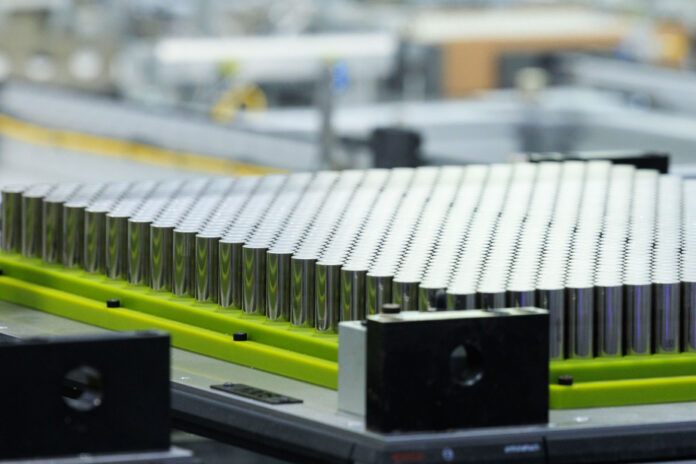(Ottawa) Canada and Japan signed a new battery supply chain agreement in Ottawa on Thursday, as Canada seeks to expand its position in the battery industry and Japan seeks assurances for its automakers access to lucrative US subsidies for electric vehicles.
Industry Minister François-Philippe Champagne has been tight-lipped about what kind of Canadian subsidies might follow to attract Japanese battery makers to Canada, although he and Natural Resources Minister Jonathan Wilkinson have all two mentioned ongoing discussions with Toyota and Honda.
Hiroaki Koda, CEO of Prime Planet Energy and Solutions, the three-year-old auto battery maker created by Toyota and Panasonic, was also in Ottawa on Thursday to sign a separate collaboration agreement with Vancouver-based FPX Nickel. Panasonic Energy also signed a framework agreement with the Quebec company Nouveau Monde Graphite.
These agreements are distinct from government-to-government “cooperation protocols,” which Wilkinson said are a typical element of negotiations and trade relations with Japan and its companies, establishing a framework for companies from both countries to enter into their own agreements.
He called it a signal “that the Japanese are really interested in manufacturing batteries in Canada and that Canada is interested in becoming a supplier to ensure that Japan has access to the types of materials it needs and that it does not has not been done at the national level,” Mr Wilkinson said.
Japan brings technology in mineral processing as well as battery and automobile manufacturers to the table, while Canada provides access to essential minerals and emerging battery manufacturing capacity.
Growing geopolitical tensions
Japanese Industry Minister Yasutoshi Nishimura, who traveled to Ottawa to sign the deal, said it was essential that the two countries seek like-minded allies in a world marked by geopolitical tensions increasing.
“Over the past four years, international affairs have become increasingly volatile, with the spread of infectious diseases, Russian aggression against Ukraine, and attempts by some countries to use economic independence as a weapon in the form of coercion for diplomatic and security purposes,” the Japanese minister said.
“In this context, the need for cooperation between Japan and Canada has increased significantly. We share common values and are good partners in the Indo-Pacific region,” he added.
Both Canada and Japan seek to counter China’s economic and political dominance in the Indo-Pacific region, as well as the global battery industry.
Canada launched a new Indo-Pacific strategy last year and has attempted to do what it calls “friendshoring” – or cooperation with its allies on critical minerals and other technological supply chains to prevent countries like Russia and China to use these supplies to influence world affairs.
For Canada, the deal comes at a good time, allowing it to showcase its growing ties with a key Indo-Pacific ally, even as its relations with India hit rock bottom.
On Monday, Prime Minister Justin Trudeau said Canadian intelligence had credible evidence that Indian government agents were linked to the shooting death of a Vancouver Sikh leader in June.
Before the explosive statement, Canada canceled a planned trade mission to India this fall and suspended ongoing trade negotiations.
International Trade Minister Mary Ng is expected to lead a trade mission to Japan this fall, saying Thursday that at least 100 companies would take part in the trip.
Canada has invested tens of billions of dollars in recent years to establish itself as a global leader in batteries, with investments in more than a dozen battery supply chain and manufacturing companies .
This includes up to $13 billion in production subsidies for Volkswagen to build a battery factory in St. Thomas, Ontario, and $15 billion in production subsidies for a Stellantis battery factory in Windsor, Ontario.
Last year, Mr. Champagne traveled to Japan three times to showcase Canada’s capacity in battery materials to Japanese automakers and electronics giants.
Canada could also help Japanese automakers produce electric vehicles that qualify for a significant consumption tax rebate in the United States. The rebate, which reduces the cost of electric vehicles for buyers by several thousand dollars, is limited to vehicles made in North America with batteries primarily made in North America.















